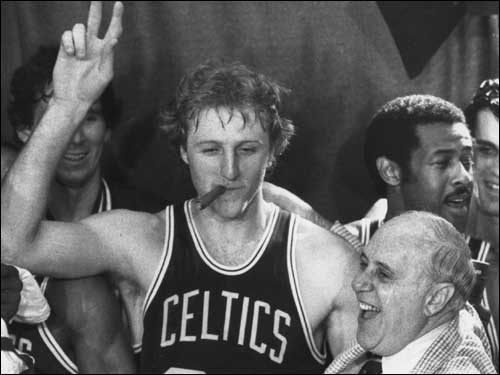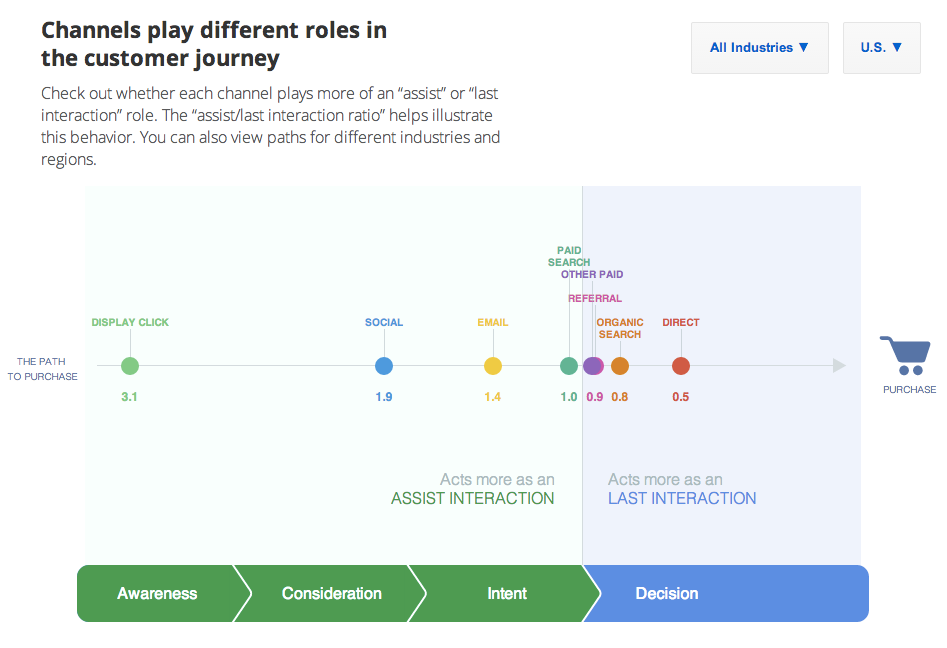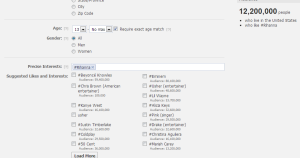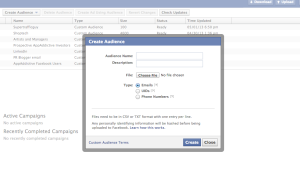You have felt like this before. You remarket on Facebook but you have to use third-party pixels. What a pain, isn’t it? You ask, “Why can’t Facebook be more like Google Adwords which allows you to remarket seamlessly with their Google Analytics?”
The Shocking Results of Our Own Split Test of Our Free Ebook Sign-up Page
Guess which landing page resulted in more sign-ups for our Ebook? The Top one or the Bottom one?

We tested these 2 variants. Result: The bottom landing page consistently outperformed the top one, by almost 90%. The bottom one generated almost twice as many leads as the top one.
The results are somewhat counterintuitive because we initially had a theory that the appearance of top brand logos and testimonials will generate more sign-ups. It turns out that most probably, the clutter actually got visitors distracted from actually filling the form!
Every online business should have a discipline of testing their landing pages because no matter what experts advise, there just might be something with your visitors, your product or your design that leads to results contrary to expectations.
What I Learned from Larry Bird, Bill Russell, Boston Celtics and Warren Buffett

As Boston Celtics’ President Danny Ainge trades away Paul Pierce, Kevin Garnett (and Doc Rivers) to avoid a long rebuilding mode, I ponder: “What would I have done if I were Danny Ainge?”
Thinking about culture-building has become a necessity as I get older and face leadership responsibilities. The Celtics trade situation is even more interesting because I am a huge Celtics Fan and because I deduced (based on past quotes and anecdotes) that three of my heroes – Larry Bird, Bill Russell, Warren Buffett – probably would have differed with Danny Ainge on this.
Celtics Dynasty – Red Auerbach
The Boston Celtics was/is my favorite basketball team for a long part of my life. (When Bird gets involved with Indiana Pacers, my favorite team switches between Celtics and Pacers). The Celtics won 17 NBA championships and its architect, Red Auerbach, has built a mystique culture called the Celtics Tradition. Many of its players continue to stay involved with the Celtics after retirement (By far, the Celtics have the most alumni work with the Celtics. No other team comes even close). While no one maxim can provide secrets to building championship teams (otherwise, everyone will be champions), I think the following quote by Red Auerbach comes close to summing up his secrets to building world championship teams: “I don’t believe in statistics. There are too many factors that can’t be measured. You can’t measure a ballplayer’s heart.”
I feel the same way. Great teams and organizations like the Celtics and Berkshire Hathaway have a culture in place that places a strong value in intangibles. The NBA is so full of physically skilled players that often, championships are won by the team or player who just has a bigger heart — who wants to win a little bit more, or just wants to play hurt a little bit more.
Likewise, in business, I believe the heart and the human spirit are constantly underrated by finance professionals who lump these intangibles as beta and all other statistical jargon. Oftentimes, it is the group of short-term players – such as investment bankers, VC’s and other LBO types – who look past the intangible qualities of a team the most because they have a near term goal (as in going for a quick near-term sale to another company), often leading to bad outcomes. Unfortunately, the near-term plans may not work out, and then the company is stuck with a bad team culture, which leads to cancer.
This is all business and everybody is doing it.
The biggest words I hear about NBA trades these days is “It’s all a business … everybody is doing it”. There is nothing wrong with being near term oriented, but as we all know, we should always question our assumptions and not get too carried away because everybody else is doing it. The four most dangerous words Warren Buffett warned are: “Everybody is doing it”. What is good for the Orlando Magic, may not be good for the Boston Celtics who has this mystique that seemed unbreakable. I propose to the Celtics owners, Grousbeck and Pagliuca, a theory that in the case of Boston Celtics which has a priceless moat around its goodwill and reputation, loyalty is also good for building long-term value of the Boston Celtics business. As Buffett said, “It takes a lifetime to build a reputation; it takes 15 minutes to destroy it.”
What happens to the Boston magic (that Russell, Cousy, Havlicek, Dave Cowens, Larry Bird, Kevin McHale and all the former Celtic players all refer to) after this? Does this mean Celtic players will become less loyal and play hurt less (in the playoffs) in the future? (Kevin McHale or Larry Bird played with broken foot and broken ankles in the 1987 NBA finals) What happens if the “heart” that Red focused on so much, becomes less and less. Danny Ainge has to assume that his actions may have a long-term impact on the culture of Boston Celtics. In fact, Ainge is lucky in that he may be able to milk the Boston mystique for a little while longer, thanks to Auerbach’s hard work in building such a loyal culture among the Boston Celtics.
How do you build a strong team culture? Let’s ask another person, like Larry Bird
Larry Bird proved himself to be a very capable team builder. With a small city budget, he changed the culture of Indiana Pacers and made them a worthwhile contender that took Miami Heat to 7 games this season. I observed his actions very carefully when I followed him from 2003 to 2011. He did not seem to fall for the short-term gain, but really thought long and hard about building the culture of the Pacers. The result is the Pacers are now an easy team to root for, if you like team basketball.
Last year, there was a big article about how Danny Ainge said he would have traded the Big Three of Larry Bird, Kevin McHale and Robert Parish if he were Red Auerbach back in the 1980’s. Larry Bird was asked by Bill Simmons and here is what he had to say:
Larry Bird: “On whether it would be prudent to break up the current Big 3 or even the original Big 3 of Bird, Kevin McHale and Robert Parish — as current Celtics president Danny Ainge has suggested: “I would have kept them [referring to himself, McHale and Parish]. The one thing about Red was loyalty. And that’s why I never wanted to leave there, because I always knew he had my back, he cared for me, he wanted me to do well. Obviously, he wanted me to play at a high level…. Danny [Ainge] did tell Red he should trade us right now because we don’t have much left in the tank… I was there with Danny and Red and McHale the day we were talking about that. The one thing that Danny threw in there was players’ names. The whole time I was in Boston I never heard Red mention any other players on other teams. I heard him talking about draft picks, but I never heard anything about, ‘Larry, I can trade you for this, this and this.’ He just never did that… Kevin McHales don’t come around very often. … you know, in 1987 Kevin played through a broken foot — it was actually broken and he tried to play and he’s still paying for it. So, you don’t find those types of guys anymore. Very few of them out there probably. Kevin gave his heart and soul to the Celtics and Red knew that.” (Original Source: http://espn.go.com/blog/boston/celtics/post/_/id/4689454/simmons-and-bird-talk-nba)
Bill Russell: ”I don’t care if we lose, I would not trade you for anybody else”
One of my most vivid memories of the Boston Celtics was when player coach Bill Russell (NBA’s winningest player who has 11 championship rings versus Michael Jordan’s 6) told his aging teammates in the last game (Game 7 before playing the Los Angeles Lakers in the 1969 NBA Finals) of his career: “I don’t care if we lose, I would not trade you for anybody else”. Watch this:
[youtube=http://www.youtube.com/watch?v=ue2kL5nwdYE&w=420&h=315]
Warren Buffett: “Who is going to the foxhole with me?”
People write about Buffett’s winning stock picks all the time, but you can learn more about the man by analyzing how he performed during times of crises. One of the most fascinating moments was when Warren Buffett had to take over as interim CEO of Salomon Brothers during the Treasury Auction rigging crisis in 1991. Watch Buffett in action as he speaks in front of the Senate:
[youtube=http://www.youtube.com/watch?v=O0R_9L_D2Yk&w=420&h=315]
In Roger Lowenstein’s book, “Buffett: the American Capitalist”, Buffett used the term “Who is going to the foxhole with me?” when choosing the CEO of Salomon Brothers. He looks for the “intangibles” that are not necessarily recommended by compensation consultants, but seem so obvious and just plain common sense. Consultants seem to ignore the big elephants in the room (e.g huge free ride packages such as options versus having the CEO risk their own capital in the company) and tend to focus on past track records even if the record was achieved during a financial boom or bubble in the industry’s period. Berkshire Hathaway directors are famous for not having Directors and Officers insurance. (In the USA, many board members in public companies abuse the D&O insurance to the point that shareholders are constantly ripped off. Funny, I see businessmen throwing away their common sense more in countries where the capital market is very developed. I think it is the other people’s money – the OPM syndrome. In Southeast Asia, where capital markets are not as well developed, asking CEOs to risk some of their capital is more common.)
I end this post by warning that there are no clear answers to this. I am sure Danny Ainge can come up with many reasons that are valid. I am sure Danny has a lot of short-term pressures that are much bigger than mine. Sometimes, in my work, I end up having to just go with faith and what feels right in the gut. I have to say no to seemingly great investment opportunities because the “intangibles” just “inexplicably” do not feel right. Call me old-fashioned, but I like to hope I would have acted more like Larry Bird, Red Auerbach, and Bill Russell if I were running the Boston Celtics.
P.S. My blog post does not do justice to the Celtics. If you are interested, pick up Bill Russell’s book, “Red and Me”, or Red Auerbach’s books such as “Red On and Off the Court” or Larry Bird’s “Drive” to understand the mystique culture of Boston Celtics.
Free 80 Page Book on How to Get Leads and Sales from Facebook

Acquire Facebook likes, Facebook engagement, Facebook leads and sales. Monetize your Facebook page with Facebook's Free analytics and Facebook Page Tabs. This is an 80 Page Book Packed with Effective Tips to Better Facebook Advertising written by Michael Onghai, CFA, Founder of AppAddictive. Anyone can receive a free soft copy of the book. Qualified agencies can receive the hard copy by mail.
Meet our Mascot, Appy.
Testimonials from Our Clients
“AppAddictive knows the social and mobile targeting and acquisition space better than any agency we’ve ever worked with. They refocused our strategy from volume and rank to ROI and loyal users, increasing daily downloads for us by 248%, and increasing conversion rates by 149%.” —Alan Rambam, Digital Marketing Executive(Tribal DDB,Vonage)
“AppAddictive is the only suite of Facebook apps I use!” — Dewey Forbes, Sales Marketing Associates, LLC
“We downloaded the AppAddictive’s Static HTML app to easily create a welcome page. We didn’t want a landing page as such (just happy for people to go straight to our wall). However once you arrive at our wall, you will be greeted with a large ‘hello’ button just under our cover photograph. The AA Static HTML app made it easy to create a multimedia welcome using text and video. This made it simple for people to know more about us and to inform them how they can get involved.” — Green Square Growers
“For a lot of film-makers Vimeo is a great way to share video content in high quality. Downloading the AppAddictve Vimeo app meant we can have a one click app where we share our Vimeo content.” — Matt Heason, Heason Events
“Your platforms are great, and your newsletters keep us up-to-date on the ever-changing world of apps and sharing platforms. You allow us to do things that we otherwise would not be able to do. I know very little code, and I can manage my way around your apps with the little I do know. This is why I will always come back. I have a tight budget and can’t always afford the expensive apps or pay a developer. That makes you cutting edge and small-business friendly. Our web presence is ever-growing, and you play a direct role in that.” – Henry de Vere White, de Vere’s Irish Pub
The Truth About Facebook Conversion Rate Optimization: Facebook converts better than Google in some industries
If you’re the CEO of a company with an online business, your focus should be the conversion rate optimization of your online presence – your web site or your Facebook Business page. A percentage point improvement in any step of your marketing funnel could enhance your overall conversion rate optimization which then results in a significant improvement in the bottom line of your business.
Since everyone knows Google, let us use the Google Search Engine Marketing budget as an example to illustrate.
Suppose you have a really cool online retail clothing website, call it JaneJackets. JaneJackets buys $25000 worth of Google Adwords clicks every month. The $25000 results in 30000 Visits to the different product pages of your web site. For simplicity, each product page will have a different design, but will have a “Add to Cart” Button. Suppose that out of these 30000 visitors, a total of 7500 added a product to your shopping cart. Now suppose that only 3250 of these people who added to the Shopping Cart proceeded to the Checkout Page. Now suppose out of these 3250 people who went to the Checkout page , only 1950 continued to pay with their credit card (i.e. 1300 abandoned their shopping cart). Suppose that the average order size is $200 dollars.
Let us do a simple math and compute the Conversion Rate of JaneJackets.
Total Sales = $200 * 1950 = $390,000
Conversion Rate = (# who Added to Cart/# of Visits to the site) *(# who went to the Checkout page/# who Added to Cart)* (# who successfully Checked out/# who reached the Check out page)
Conversion Rate = (7500/30000) * (3250/7500) * (1950/3250)
= 25% * 50% * 60%
= 7.5%
Now suppose that we use Conversion Rate Optimization techniques to tweak JaneJacket’s Landing Page, tweak the Google Search Keyword Campaigns and the overall conversion rate improves to 9%, the resulting Total Sales will become (9% of 30000) * 200 = $540,000 or an increase of $150,000 in revenues!
Now, this may surprise you but here is the little truth: Facebook may actually perform better than Google and increase your Conversion Rate. We deal with Facebook ad campaigns everyday and we have live internal data to show that Facebook is outperforming Google in terms of conversion rate with some clients. In fact, Google Analytics’s latest product, “Customer Journey to Online Purchase”, confirms that Facebook is a good conversion channel for some industries. Read this post to find out how Facebook fares against other online advertising channels among various industries.

There are some industries – entertainment, media, online retail – where Facebook is really good at conversions. Additionally, because Facebook has the native ad units and their cost per click tends to be lower than Google, the overall conversion rate is much better with Facebook than with Google. It is our prediction that as the world becomes more and more comfortable in the future with social media, Facebook will perform even better as a conversion channel.
AppAddictive helps organizations and clients do Facebook conversion rate optimization by using analytical Facebook Ad Optimization and Facebook Page Optimization. In short, we use Facebook to help clients acquire customers and conversions for businesses – whether it is customers, Facebook likes, Facebook Engagement as measured by People Talking About This (PTAT), or mobile and Facebook app installs, leads, surveys or contests or coupons.
How Rihanna Can Help Your Facebook Ad Campaigns Raise Funds for Democrats
It is never a dull moment in the world of Facebook ad optimization. For all you internet marketers out there, I am giving you a freebie for your next Facebook ad campaign.
One of my favorite passions in Facebook ad optimization is using my love for numbers to come up with correlations and relationships ahead of our competitors. As Facebook has more than 1 billion users, they have a very comprehensive database of targeting and running these tests require a lot of number crunching. This is very much akin to when I was testing quantitative finance algorithms on my Silicon Graphics Irix box back in the 1990's to try to extract opportunities for profit in the stock market.
At AppAddictive in our NYC headquarters, our team uses massive Excel sheets, collect data from all sources, make conclusions that allow us to achieve return on investment goals of our client.
This machine learning process discovers some insightful jewels that human guessing will never be able to find.
In one of our exercises, we discovered that Rihanna's fans are mostly political Democrats.
So, what can you do with this?
Suppose you are fund-raising for a Democratic candidate, you can create ads in Facebook Ad Manager and target Rihanna Fans. You can set #Rihanna under Precise Interests. And if you are targeting only people from your state you can add all the other geographic target. See screenshot below.
Grow Your Site Like Tumblr with This Facebook Hidden Formula
Last week, the world welcomed another billion dollar company with Yahoo's acquisition of Tumblr. Tumblr was founded by a high-school dropout named David Karp in 2006. Using a combination of common sense and growth-hacking techniques, David Karp grew his site into millions of users with a hundred million blogs in 7 years.
As a developer of mobile apps, we are often asked by business owners how can they grow their apps like Tumblr? The answer is: Don't dream about being the next Tumblr, but instead, go for a more realistic goal, like DonorsChoose.org, which has raised over one million dollars using a seldom used feature of Facebook's API – the Open Graph, without much marketing.
I am very glad to read this post by Charles Best of DonorsChoose.org. A business that helps organizations raise funds for good causes takes advantage of Facebook's Open Graph to raise over $1 million dollars. What is there not to like about that?
Here is how Facebook's Open Graph works:
When developers create a web or mobile Facebook app, they can specify certain actions that are automatically posted to the user's Facebook timeline. Examples of verbs are : Run, Donate, Cook, Draw, etcetera.

When a user does certain actions inside the app, the app can publish the verbs at the timeline.

DonorsChoose.org used this clever Facebook feature to publish the verbs “donate”, “fund” at various points of the app.
Back in 2007 working only on weekends, I took advantage of Facebook's API to create quiz apps that reached 10 million monthly active users. In these days, the Facebook apps are a lot less viral than they used to be. But there are still tons of opportunities to use Facebook's ecosystem to grow your apps without much marketing spend. If I were a developer starting out today, I would think about a “pain point” that needs to be solved. I will then create a Facebook mobile app, integrate Facebook's Open Graph, and Facebook's Native Share Dialog.
How You Can Use Facebook’s Secret Product to Market to Your Email List!
Every online marketer knows the value of an email address. When customers give your business their email address, it means they have entrusted your business the permission to send them your messages. So, what is the problem? The problem is that more often than not, the email is interruptive to the user and the brand has just eroded some of the goodwill the customer has formed with the brand.
Now, combine this trusted permission and the power of Facebook and you get the picture. Enter Facebook’s “Custom Audience” Product.
Here is how “Custom Audience” works. Custom Audiences allows businesses to upload their email list to Facebook and communicate with the email list without being interruptive. Instead of emailing (often unwanted) to an existing customer, ”Custom Audiences” enables a business to communicate to an audience without interrupting the experience. It’s a subtle conversation between the marketer and the customer.
At AppAddictive, we recently ran a custom audience Facebook “Custom Audience” campaign with a B2B customer, and the results were dramatically amazing. Ask us about Custom Audience.





